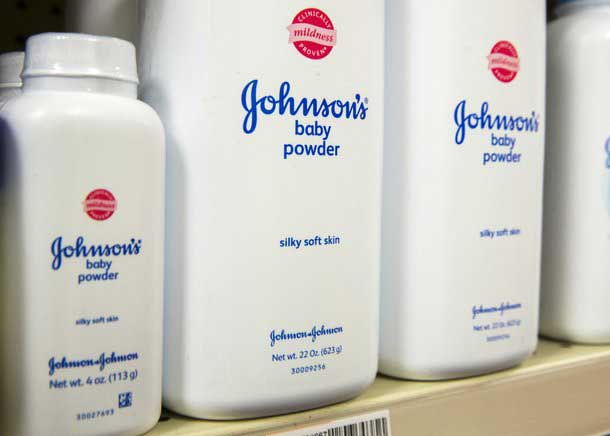 A woman in California has been awarded NZD$98 million in a lawsuit alleging that years of using Johnson & Johnson’s baby powder caused her cancer. The ruling in the US city of St Louis on 28th October is the latest case raising concerns about the possible health ramifications of long term talcum powder use.
A woman in California has been awarded NZD$98 million in a lawsuit alleging that years of using Johnson & Johnson’s baby powder caused her cancer. The ruling in the US city of St Louis on 28th October is the latest case raising concerns about the possible health ramifications of long term talcum powder use.
The woman was diagnosed with ovarian cancer in 2012. About 2000 women have filed similar suits, and lawyers are reviewing thousands of other potential cases.
Earlier this year, two other lawsuits in St Louis ended in jury verdicts worth a combined NZD$177 million. However, two others in New Jersey were thrown out by a judge who said there wasn’t reliable evidence that talc leads to ovarian cancer.
A spokesperson for Johnson & Johnson said: “We deeply sympathise with the women and families impacted by ovarian cancer. We will appeal the verdict because we are guided by the science, which supports the safety of Johnson’s Baby Powder.”
Much research has found no link or a weak one between ovarian cancer and using baby powder for feminine hygiene, and most major health groups have declared talc harmless. Johnson & Johnson, whose baby powder dominates the market, maintains it’s perfectly safe.
The International Agency for Research on Cancer classifies genital use of talc as “possibly carcinogenic”.
Talc is a mineral that is mined from deposits around the world, including the US. The softest of minerals, it’s crushed into a white powder. It’s been widely used in cosmetics and other personal care products to absorb moisture since at least 1894, when Johnson & Johnson’s Baby Powder was launched.
Johnson & Johnson has been targeted before by health and consumer groups over ingredients in its products, including Johnson’s No More Tears baby shampoo. The company agreed in 2012 to eliminate 1,4-dioxane and formaldehyde, both considered probable carcinogens, from all products by 2015.



